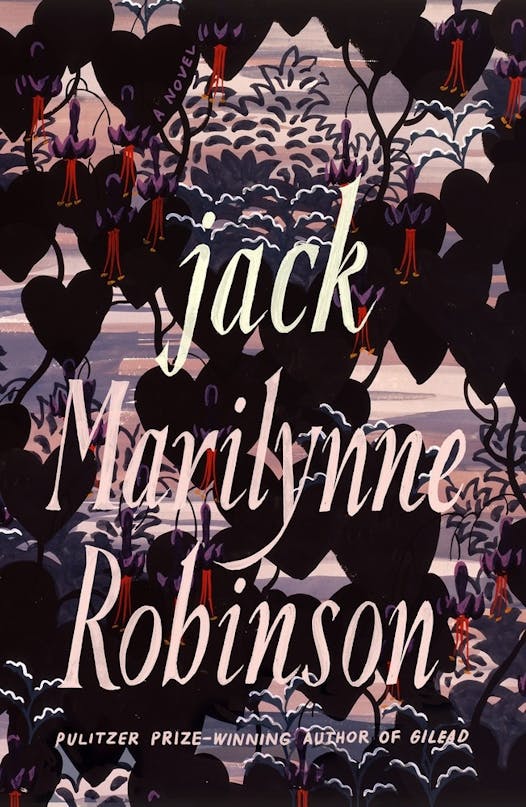Jack Boughton is probably the most interesting character in the fictional world of Marilynne Robinson's Gilead novels. The prodigal son of one of that world's central families, he has had a secondary role in the earlier books ("Gilead," "Home" and "Lila" — which you needn't read to appreciate the new one, but why wouldn't you?) as the most difficult of the Rev. Robert Boughton's eight children, and his father's favorite.
In "Jack" we find him living a marginal life in St. Louis around the end of World War II, after doing a two-year stint in prison for a theft he didn't commit, but might as well have — "he was a thief to the marrow of his bones, essentially and, perhaps, everlastingly."
He's also a drinker, with a destructive streak, who refers to himself, variously, as disreputable, a fool, a confirmed, inveterate bum and "the rotter I am," who had made an early start on a wasted life.
In light of that early start and its tragic consequences, "he had discovered a new aspiration, harmlessness." But, as he tells his companion in a long, somewhat surreal night spent in a graveyard, "I have no real aptitude for harmlessness, which makes it interesting." And, oddly enough, it does, because, along with being a disreputable, inveterate rotter, Jack is delightful — funny, brilliant, extraordinarily perceptive and so deeply erudite that the poetry of the Bible and Shakespeare (for instance) thread inextricably through his thoughts.
Time is fluid in the novel. The woman stuck in the graveyard with Jack — Della — we've first met briefly in the opening scene, as Jack tries to catch up with her after, apparently, suddenly abandoning her in the middle of a meal at a restaurant. How the meal came to be, and then the abandonment, we learn later, along with the provenance of the notable scar Jack has acquired between the opening and the graveyard. Further on, we get a little of Jack's recent and distant history, circling back, finally, to his relationship with Della, the heart of the novel's drama, mystery and misery.
Della, "a preacher's daughter, a high-school teacher, a young woman with excellent prospects in life," is Black, and in postwar Missouri, her attachment to Jack, a white man, is illegal, socially unacceptable and downright dangerous. Mores and statutes, inconvenient at first, eventually become the overwhelming practical barriers to the couple's happiness. But earlier, and initially of greater consequence, are the impediments of character and experience. What is in fact most powerful and poignant about this love story is how at once hard and permeable is the boundary between the "marriage of true minds" and the real world; and in Jack's case, how internal that boundary also is.
"I think most people feel a difference between their real lives and the lives they have in the world," Della says. "There is — anyone, any human being, and then that person's actual life, everything they didn't mean or couldn't say or wished for or grieved over. That's reality. ... Why should so much reality, most of it, count for nothing?"
And this, as Jack weighs the harm an alliance with him would do to Della's life against the pain a separation would cause her, is "his oldest," and the novel's ultimate question: "How did people live?"
Ellen Akins is a writer and a teacher of writing in Wisconsin. ellenakins.com
Jack
By: Marilynne Robinson.
Publisher: Farrar, Straus & Giroux, 320 pages, $27.


